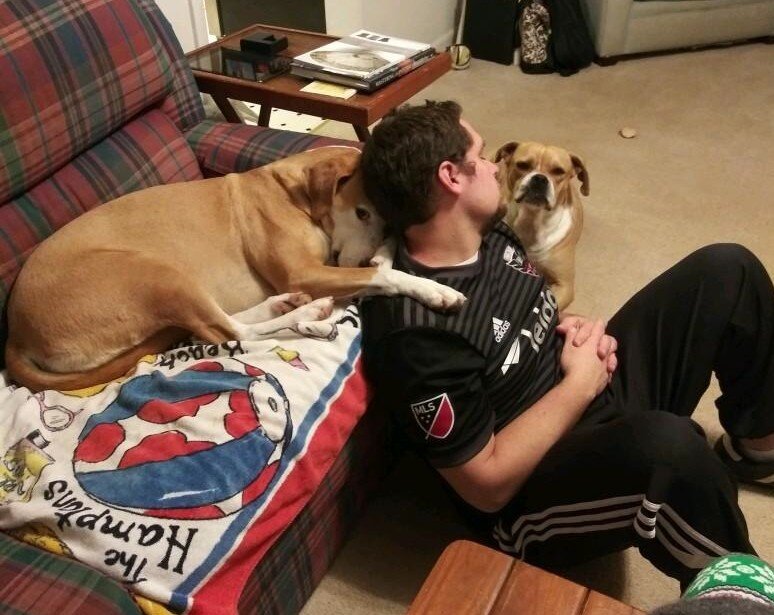RLL 81: Coronavirus Crisis and Blended Family Thoughts
So unless you’ve been living under a rock for the past few weeks, you know that our world is in a different place than we’ve been in for quite some time. Many places are in lockdown, others are in partial lockdown, and still more are moving that way. This is unusual, and anything unusual also tends to be scary, especially for parents with children and teenagers. However, for those of us in blended families, these times are even more complicated.
For those of us who are old enough to remember 9/11, one of the major aspects of that day was seeing how many parents immediately went to schools or daycare centers to get their kids and bring them home. I was in college at the time, and some students (who were within driving distance) were contacted by their parents about coming home. Understandably, in times of crisis, parents want to be able to see and hug their children to make sure that they’re safe.
Easter a few years ago with my wife and my two girls. They’re 13 and 15 these days…how time flies!
However, for blended families, this isn’t necessarily possible. In one of the blended family Facebook groups I’m part of, I’ve seen multiple posts recently asking how various family groups are handling the current situation. Do you have all the kids in one place? Do they all go to their bio-parents’ house? Do some kids stay with one parent while others go with the other? Do you do regular switch-overs, or do you adjust the time? Do you scratch switch-over altogether, and if so, for how long? What if the bio-parents don’t agree on the answers to these questions?
These are all questions that need to be carefully thought through and considered, and there is no one-size-fits-all answer for blended family questions. However, I want to share with you a few principles that should help shape your thinking when trying to answer these questions for your own blended family.
What is best for the children’s health and safety? This is the single biggest question that needs to be a guide for you. It may seem obvious, but often we let our own desires or emotions override what might be best for our children. Now is not the time for egos; now is the time for rational, honest self-assessment and decision-making.
What threats are present in various homes that need to be considered? For example, if one home has someone who may still have to go to work and is much more likely to be exposed, and the other home doesn’t, at least consider having the child stay in the ‘more safe’ environment, even if that’s difficult for you.
What if the parents disagree? In difficult situations, when parents cannot find a ground for compromise or agreement, my usual suggestion is to default to whichever parent has a more ‘strict’ or protective view. This is difficult and not terribly pleasant, but I do think it’s worth considering. In a time of crisis, we need to be willing to show grace and patience above and beyond what we normally would.
What if the children need to stay in one home? If this is the case, then I would strongly encourage you to be flexible regarding communication between homes: increase time available for phone calls, facetime, Skype calls, texting, Google hangouts, or whatever your chosen method of communication is.
Remember that however worried/anxious/scared/nervous you are, the children are feeling these things even more acutely than we are. They are looking to us for guidance and direction, and we need to make sure that we are providing those things for them. This includes setting an example for them in how we relate to the other adults in their world in times of crisis.
Remember, in times of crisis, our beliefs and our values and our commitments are tested. In the midst of those times we need to make sure that we are continuing to ‘walk the walk’ and not just ‘talk the talk’ in front of our children.
Show grace, show cooperation show empathy. Display courage, display wisdom, display prudence. Exercise humility, exercise perseverance, exercise patience.
These are difficult times, and our families need us now more than ever before. Let us commit to doing what is best for our families even when it’s difficult; this is important for the short-term, and it also lays good foundations for a better long-term relationship as well.
If you have any questions, or if I can help you with specifics in your blended family, please reach out to me today. Email me at joel@speakerjoel.com or joel@joelwhawbaker.com or through the Contact Joel pages on either of my websites (www.joelwhawbaker.com and www.reallifeleading.com ) .
For more tips and articles on blended family life, be sure to check out my website at www.stepdadding.com . Thanks!!





